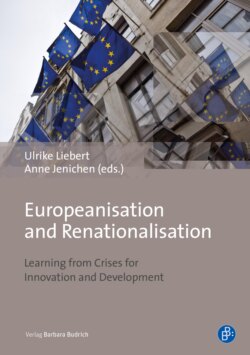Читать книгу Europeanisation and Renationalisation - Группа авторов - Страница 17
На сайте Литреса книга снята с продажи.
3. [37] Living with anti-pluralist populism in Europe: Insights from the Dutch 2017 elections1 Ben Crum 1. Introduction
ОглавлениеNever before did a Dutch election attract as much attention from foreign media as the one on 15 March 2017. Journalists swarmed to the Netherlands, driven by one big question: Will Geert Wilders win? Wilders became a topic of particular interest thanks to the dramatic votes of 2016: the Brexit referendum in the United Kingdom and the election of Donald Trump as President of the United States. The prospect thus lured that the Netherlands would see a similar dramatic turn-around, one that would be indicative of a transnational ‘rise of populism’. Dutch Prime Minister Mark Rutte qualified – and dismissed – such expectations as a ‘domino theory’ which suggests that with one or two countries falling prey to populist movements, the rest will follow automatically (Jonker 2017).
Eventually, Wilders was not the big victor of 15 March. He got 13.3 percent of the vote-share, corresponding to 20 of the 150 seats in the Dutch Lower House, which is five seats more than he got at the previous elections in 2012 but four less than his best result to date in 2010. What is more, the Freedom Party certainly did not become the biggest party, and it was effectively sidelined from the government to be formed. Ironically, soon, commentators started to float a reverse domino theory, in which the relative loss of Wilders was prefigured by the win of Alexander Van der Bellen of the presidential elections in Austria and followed in May 2017 by the victory of Emanuel Macron over Marine Le Pen in the French presidential elections.
However, if anything, the experience of the Dutch elections signals the normalization of anti-pluralist populism, even if they do not come out victorious. While for a long time, anti-pluralist populist parties could still be treated as an aberration and a rather marginal phenomenon, recent elections indicate that [38] they are there to stay as a significant political force in many political systems. Considerable attention has been devoted to those EU member states, Hungary and Poland, in which we witness actual backsliding in terms of political pluralism and the rule of law (Bánkuti/Halmai/Scheppele, 2012; Müller 2015a; Closa/Kochenov 2016; Schipplak/Treib 2017). However, the normalization of anti-pluralist populism and the potential threat it poses to democratic pluralism in Europe is a phenomenon that applies to a much wider range of European countries, including for instance France, Germany, Austria, Finland, and Denmark.
In this paper, I use the Dutch case to discuss this development and its broader implications for Europe at large. After characterising anti-pluralist populism, I turn to the Dutch 2017 elections and analyse their outcome as well as their historical context. While the Dutch case obviously has some particular features of its own, there are clear parallels with anti-pluralist movements in other European countries and it certainly raises fundamental question for Europe as a whole.
